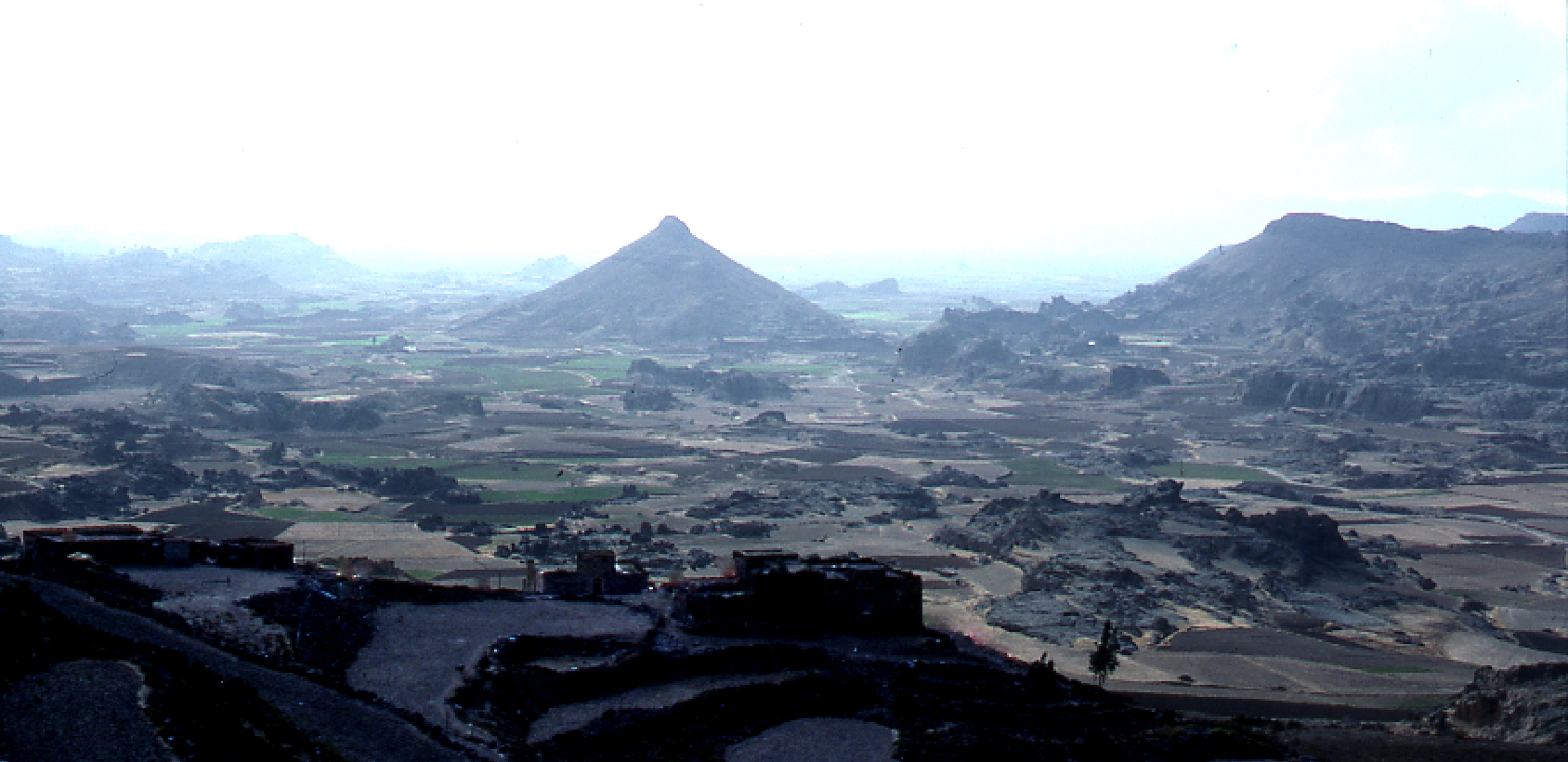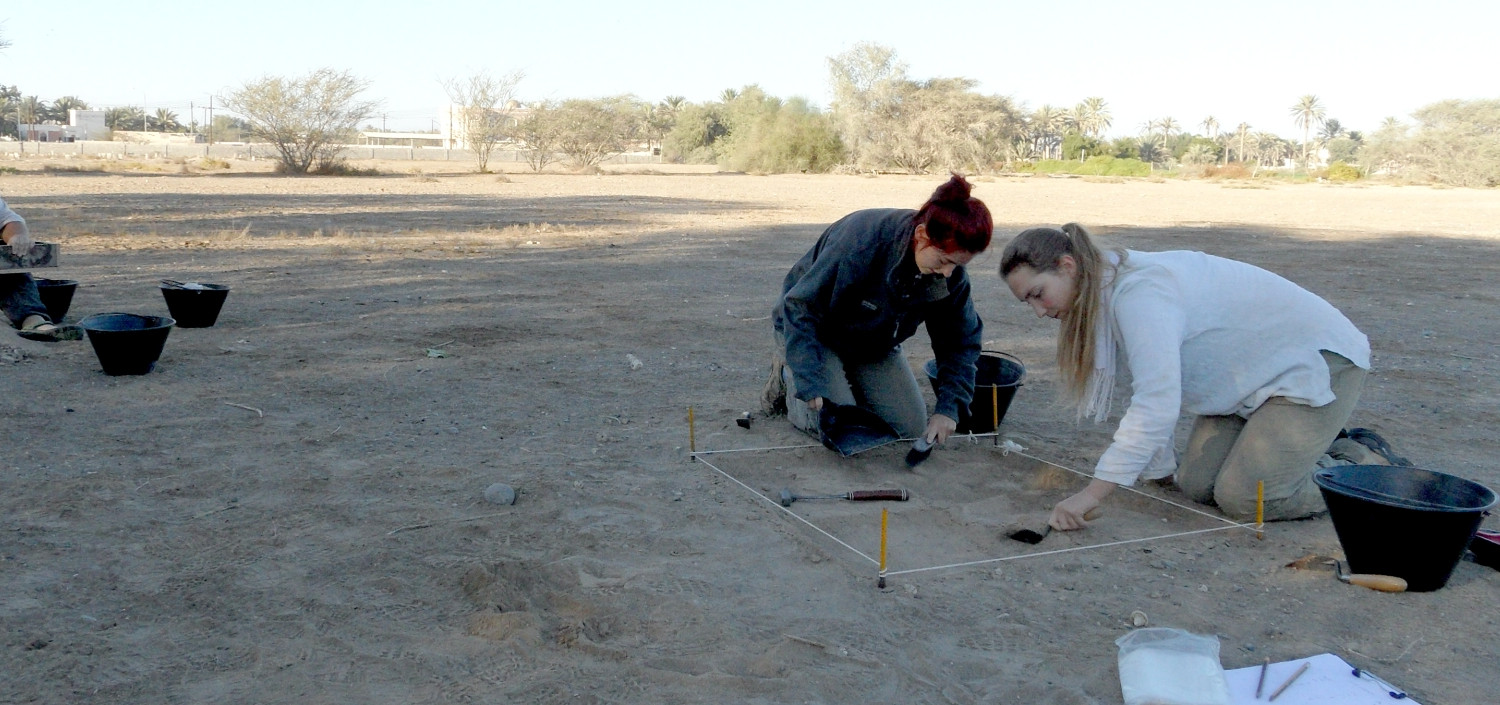Applications must be linked to clear and achievable plans for immediate publication.
The number of awards made each year will depend on the strength of applications. This year a total of £4,500 will be available. Main Research Grants up to £2,000 and Small Research Grants up to £1,000 will be considered. In exceptional cases larger applications can also be considered. IASA grants can be combined with grants from other grant awarding bodies to support a single project.
Guide to applicants
There are two types of research grant:
- Small Research Grants: up to £1,000 (for all categories of researchers)
- Main Research Grants: up to £2,000 (for post-doctoral research)
The application deadline is 31 May 2025. Awards are expected to be announced by the end of June 2025.
Eligibility
The main objective of the research must fit within the scope of the IASA’s aims, which are to promote research relating to the Arabian Peninsula, in particular, its archaeology, art, culture, epigraphy, ethnography, geography, geology, history, languages, literature and natural history. Grants may be used to fund fieldwork, library or laboratory-based research or research support.
Applicants to the Main Research Grants should normally hold a doctorate at the time of application. Exceptions can be made for researchers with a proven track record of post-doctoral level research and publication.
Applicants for Small Research Grants can be at any level of their career, though they would normally be expected to be at least in the second year of a relevant university undergraduate degree.
The grants are available to researchers of any nationality.
Individuals or groups can apply but the Principal Investigator (PI) of any project must make and be responsible for the application.
If funding is being sought for a component part of a larger project, the sub-project should be free-standing with its own objectives.
Generally, equipment costs should not comprise more than about 10% of the total budget. Higher proportions will be considered if the case is made in the application.
Conference attendance will not normally be funded unless it can be shown that attendance will contribute in a significant way to the research and publication.
Institutional overheads will not be covered.
Salaries for short-term research staff are allowed but replacement teaching costs for academic staff will not normally be considered.
Application process
Completed applications, together with referee statements, should be submitted by email to the IASA Grants sub-committee (details below) by the deadline. This deadline will be strictly adhered to.
Applications must contain the following information under the following headings, (which should be clearly set out in the application and numbered as below):
1. Name, affiliation and full contact details of the PI (please include an email address).
2. Title and short abstract (title c 20 words, abstract max 100 words).
3. Aim of the project and objectives (max 250 words).
4. Grant being applied for (Small Research Grant or Main Research Grant).
5. A full description of the proposed research, including methodologies and details of how time in the field and/or research support will contribute to the project (max 1,000 words).
6. Duration of research with intended start and end date.
7. Permissions. Details of permissions required to conduct the research and whether or not they have been obtained.
8. Linked applications. Details of any other applications that are being made to support the same project and for how much. Details of what action will be taken if such applications are not successful.
9. Wider context. An assessment of the wider context and relevance of the research to the Arabian Peninsula (max 500 words).
10. Publication. A clear statement of plans for publishing and disseminating the results including dates (max 250 words).
11. Risk assessment. If the application is not being made through an academic institution that enforces its own risk assessment and ethical evaluation, a risk assessment and safety management plan, and details of appropriate ethical approvals (see conditions of award below) – max 300 words.
12. A fully itemised budget. This should include travel, accommodation and per diem costs, as well as details of the source of funds for budgeted costs that exceed the value of the award and clear details of what will happen if such funds are not forthcoming.
13. CV. A one-page CV of the PI plus a full list of their publications, and details of all other researchers involved if appropriate (name, qualifications, expertise, nationality, role – max 200 words per member).
Note: Please do NOT send any other supporting documents such as previous reports, these will not be used when screening the applications.
Referee statements
One referee statement (for Small Grants) and two referee statements (for Main Grants) are required. Ideally at least one referee should be employed in a recognised academic institution. All referees should be independent of the research activities and related institution/s of the PI and other researchers involved in the project.
Please send your referees a copy of the Referee Guidelines below and ask them to send the references directly to the Grants Officer by email by the deadline.
Selection process
Applications will be assessed by the Grants Sub-Committee of the IASA. No interviews will be held. Recommendations for awards by the Grants Sub-Committee will be approved by the IASA trustees and their decision will be final.
Conditions
The IASA requires that the research it funds be conducted in an ethical and responsible manner according to the IASA Research Ethics Policy.
The IASA will not fund fieldwork that takes place in an area where the UK Foreign and Commonwealth Office advises against travel before the project goes into the field.
Personal medical insurance must be in place for all team members before departure.
A full final report must be submitted electronically and in hard copy by 1st September of the year following the award. The final report must include a description of the project and its key findings (1000 words minimum for Small Grants, 2,000 words minimum for Main Grants), illustrated where appropriate, referenced and suitable for publication. A final budget statement MUST be included along with details of presentations, publications and any other outputs.
Award details, including text and images from reporting, may be used in publications and on the Society website. If appropriate and mutually agreeable to the PI and the IASA, the final report may be published in the IASA Bulletin.
The recipient of the award may also be asked to present a lecture on the project work as part of the IASA lecture series at a mutually convenient date.
IASA support should be acknowledged in all publications and outputs. Copies of any such publications and outputs should be submitted to the Grants Officer of the IASA.
Recipients will be expected to become members of the IASA.
Contact/ Applications
IASA Grants Officer: grants@theiasa.com

Guide to Referees
The IASA would be grateful if you could write a reference providing a critical evaluation of:
1. The proposed project’s strengths and weaknesses in terms of originality, validity and likely contribution to knowledge of the Arabian Peninsula.
2. The applicant’s ability to complete the programme of work safely and responsibly within the time and budget proposed.
3. Any additional information that you feel might help the Selection Panel.
Your reference will be one of the key factors in assessing the applicant’s suitability for a grant.
Please submit your reference statement, if possible either by email from an institutional email address or signed and scanned on institutional, headed letter paper to the IASA Grants Officer by email (details below) by the deadline above.
The IASA would like to thank you in advance for your assistance. Your reference will be acknowledged by email.
Contact/ References
IASA Grants Officer: grants@theiasa.com
BFSA Research Ethics policy
Equal opportunities
The BFSA is committed social inclusion, diversity and equal opportunities and is opposed to any direct or indirect discrimination on the grounds of social class, race, ethnic origin, sex, age, religion, sexual preference, or disability. All applicants receive equal treatment.
Ethics
The BFSA requires the research it funds to be conducted in an ethical manner. The following considerations apply to all research to be supported by BFSA grants: accurate reporting of findings, and a commitment to enabling others to replicate results where possible;
fair dealing in respect of other researchers and their intellectual property;
honesty to research staff and students about the purpose, methods and intended and possible use of the research and any risks involved;
confidentiality of information supplied by research subjects and anonymity of respondents (unless otherwise agreed with research subjects and respondents); and independence and impartiality of researchers to the subject of the research.
Supporting the IASA Grants
IASA began making awards to support research in the Arabian peninsula from 2013 following a generous donation from the IASA Patron, Valeria Piacentini. We have since continued to make awards by drawing down on reserves, but this is not sustainable in the long term. We have thus set up the IASA Grants Fund with the aim of attracting donations to enable us to continue supporting research in the long term.


